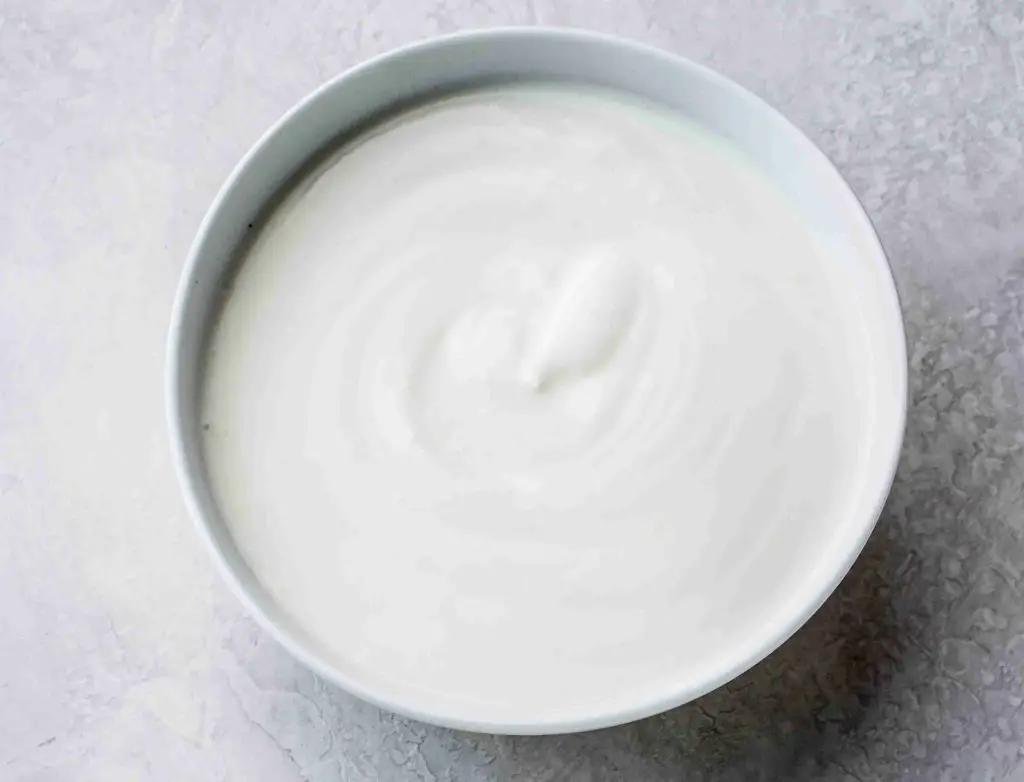If you’re concerned that eating too much yogurt may cause you to gain weight, or if you’re uncertain as to how much yogurt you should take, you need to look no further.
Various experts recommend yogurt as healthy food, although the vast majority of yogurt variations are not calorie or fat-free.
Like any other food, excessive yogurt eating can lead to weight gain.
However, weight gain may also be influenced by genetics, general health, and physical capacity.
Yogurt is not a fat-burning food (no food is genuinely designed to burn fat)!

All that matters is understanding the science behind a certain product, in this case, yogurt, and the rising health benefits or risks associated with it.
This knowledge will assist you in making intelligent food decisions.
Nevertheless, it is crucial to note that consuming nonfat yogurt may assist in replacing empty calories in the diet, hence aiding weight loss.
Before pointing the accusation at yogurt, carefully consider the role it plays in your diet.
Contents
Nutritional Value Of Yogurt
Not all yogurt varieties are identical.
Therefore, it is more probable that you will gain weight if you choose a yogurt that is loaded with sugary ingredients such as syrupy fruit or caramel, as opposed to plain, fat-free yogurt.
16 ounces of low-fat fruit-flavored yogurt have 450 calories, 5.2 gms of fat, 18 gms of protein, and 84.6 gms of sugar, according to the USDA.
A typical serving of fat-free plain yogurt contains only 13 grams of protein, 0.4 grams of fat, 17.40 grams of sugar, and 127.0 calories.
Does it include an excess of calories?
Unless you consume nothing but yogurt, it is not the primary reason for your weight gain.
If you are gaining weight, it is because you are consuming more calories than you are burning in your regular activities.
Therefore, there is not a single valid reason why yogurt must be the food to be eliminated unless you desire to eliminate it.
In certain circumstances, combining yogurt with other ingredients may potentially make losing weight more difficult.
How to eat it properly?
Although yogurt eating is not the cause of your weight gain, your desires or consumption patterns may have something to do with it.
For instance, if you believe that yogurt is a “good food” and add a ton of it to every single meal you consume, you will acquire an unnecessary amount of calories.
The same applies if you have a habit of grabbing yogurt whenever you are bored, anxious, or stressed.
When feeling hungry and in need of calcium or protein, it is advisable to incorporate solely fat-free versions of yogurt in snacks or meals to maintain or reduce weight.

Is processed food still nutritious? It is inevitable that yogurt will lose part of its beneficial characteristics, which consist of live bacteria, during processing.
Other components, such as minerals and proteins, may not be significantly affected during processing.
Yogurt should be consumed on an empty stomach or in the morning.
This is due to the fact that the beneficial probiotics or bacteria in yogurt must reach the large intestine alive in order to maintain or regulate digestive efficiency and mental health.
Is homemade yogurt beneficial to health?
The homemade varieties of curd yogurt contain a large array of germs. In the form of a starting culture, each household has its own unique blend of germs.
In professionally produced yogurt, it is uncommon to discover such a broad array of microorganisms.
These combinations contain a specific number of one or two types of bacteria or helpful microorganisms.
If you want to incorporate it into your daily diet with minimal effort, the best way to do so is by consuming a smoothie with seasonal fruits.
Is Greek yogurt a suitable alternative to regular yogurt?
Greek yogurt is typically regarded as one of the most nutrient-dense yogurt alternatives.
As a result of its manufacturing process, it is naturally richer in protein, making it an excellent addition to breakfast that will leave you feeling content throughout the morning.
This yogurt is typically less sweet and sourer than ordinary yogurt.
Typically, it is strained, making it thicker and smoother.
Through straining, some lactose is eliminated, and the resulting yogurt is lower in sugar, carbohydrates, fat, and calories.

It contains protein, vitamins (including B12), and minerals (like calcium). It proves to be an effective diet for weight loss.
In addition, it is abundant in probiotics, which support the immune system and digestive health by delivering beneficial bacteria for a healthy gut biome.
Substitute non-fat yogurt
Nonfat yogurt makes it feasible to incorporate yogurt into a recipe without significantly affecting the flavor of the dish.

Low-fat yogurt is an excellent source of calcium, protein, and good bacteria, whereas sour cream is filled with fat.
Conclusion
If you are gaining weight, you should always consult your doctor before making any drastic dietary changes. As you do not yet know what the problem may be.
According to the Mayo Clinic, a number of variables may be at play, including decreased physical activity and menopausal weight gain.
Due to its healthy calcium and protein content, plain, fat-free or low-fat yogurt is a beneficial addition to most diet plans; therefore, you should not stop consuming yogurt simply because your weight has fluctuated somewhat.
The majority of sedentary adults continue to find non-fat yogurt to be a decent option.
However, when there is a larger calorie need, such as during pregnancy and nursing, fat may be required (low-fat versions).
Always choose homemade yogurt over store-bought; it will not make you fat.

